Critical Issues in History
Series Editor: Donald T. Critchlow
Editorial Advisory Board
Paula Baker, University of Pittsburgh; Paul Bushkovitch, Yale University;
Jane DeHart, University of California, Santa Barbara; William
Rorabaugh, University of Washington; James Tracy, University
of Minnesota
The British Imperial Century, 1815-1914: A World History Perspective by Timothy H. Parsons
The Great Encounter of China and the West, 1500-1800 by D. E. Mungello
Europes Reformations, 1450-1650 by James D. Tracy
The Idea of Capitalism before the Industrial Revolution by Richard Grassby
Turning Points: A Short History of the Modern Labor Movement by Steven Babson
A Concise History of the Crusades by Thomas F. Madden
ROWMAN & LITTLEFIELD PUBLISHERS, INC.
Published in the United States of America
by Rowman & Littlefield Publishers, Inc.
A wholly owned subsidiary of
The Rowman & Littlefield Publishing Group, Inc.
4501 Forbes Boulevard, Suite 200, Lanham, Maryland 20706
www.rowmanlittlefield.com
PO Box 317
Oxford
OX2 9RU, UK
Copyright 1999 by Rowman & Littlefield Publishers, Inc.
All rights reserved . No part of this publication may be reproduced, stored in a retrieval system, or transmitted in any form or by any means, electronic, mechanical, photocopying, recording, or otherwise, without the prior permission of the publisher.
British Library Cataloguing in Publication Information Available
Library of Congress Cataloging-in-Publication Data
Grassby, Richard.
The idea of capitalism before the Industrial Revolution / Richard Grassby.
p. cm.(Critical issues in history)
Includes bibliographical references and index.
9781461644446
1. Capitalism. 2. Industrial revolution. 3. Economic history.
I. Title. II. Series.
HB501.G642 1999
330.122dc21 99-34932
CIP
Printed in the United States of America
 The paper used in this publication meets the minimum requirements of American National Standard for Information SciencesPermanence of Paper for Printed Library Materials, ANSI/NISO Z39.48-1992.
The paper used in this publication meets the minimum requirements of American National Standard for Information SciencesPermanence of Paper for Printed Library Materials, ANSI/NISO Z39.48-1992.
SERIES EDITORS FOREWORD
The nature of capitalism and of free-market economies, as Richard Grassby explains, presents the student of economic history with a complex set of problems: What is the definition of capitalism? Are free-market economies the same as capitalist economies? What is the significance of capitalism to our understanding of economic development, social and political order, and culture? Indeed, when did capitalism first emerge? Finally, is capitalism good or bad?
In this book, Professor Grassby, a historian of seventeenth-century England, answers these questions by framing capitalism as a historical process that has changed over time. In providing this context for our understanding of capitalism, he posits that the idea of capitalism has symbolic importance but little historical reality or explanatory power when applied categorically to every economy, society, political regime, or culture. As a consequence, the significance of the idea of capitalism is that it is a creature of myth rather than historical reality. The development of economies, including market economies, is not predetermined but is conditioned by human action and the balance of power. Economic change occurs continuously and proceeds at an uneven pace. This change is not universal or absolute and therefore needs to be studied within the particularities and relative context of each society and historical period.
In stating his case that capitalism needs to be explained within specific historical contexts, Grassby reexamines the rich historical debate over the meaning of capitalism, the nature of production and exchange, the nature of contract, and the spirit of capitalism and its ideological rise in the industrial period. He offers to the reader a general definition of capitalism in terms of the market economy and the growth of financial markets and consumerism, but he qualifies this definition by arguing that these attributes must be located historically within each society. Moreover, he warns that many of the characteristics attributed to capitalism, including the concept of modernity, were a consequence of the Industrial Revolution, which transformed the economic basis of society with its new technological and energy sources. Social scientists and historians, he adds, have focused their greatest attention on the transition from feudalism to capitalism, not on the transition to industrialism.
Readers of this terse study will find Grassbys work challenging and controversial. By arguing that capitalist development is an uneven historical process, without determined attributes or consequences, he challenges marxist, neoclassic, feminist, monetarist, rational-choice, and institutionalist theorists who have imposed deterministic, abstract models on historical developments unique to each given society. He accuses these theorists, both marxists and nonmarxists, of assuming the existence of the capitalist system and then looking to the historical record for illustrative examples. Instead, he calls for students of capitalism to grapple with the diverse and contradictory sources found in the historical record. Societies, he concludes, develop piecemeal and can continue to function even when certain sectors of the economic, political, and cultural sectors no longer function properly. Outcomes are not predetermined.
In the end, Grassby finds that central to understanding economic and social development is the importance of individual agency. Because societies are composed of individuals whose behavior cannot be predicted, all social systems are potentially unstable. Even capitalism with its great benefits (and costs) appears to have its own life cycle, falling victim to old age, lack of direction, disagreement over priorities, and incompatible ends. Yet neither its rise nor collapse can be determined. The task of the student of history is to examine the process of uneven and nonlinear development within specific localities by keeping in mind the importance of societal peculiarities and individual action. Perhaps one of the ironies of this conclusion is that Grassby agrees in the end with Karl Marxs observation that humankind makes its own history.
Donald T. Critchlow
Series Editor
WHAT IS CAPITALISM?
There are few characteristics of the modern world that have not been attributed to or blamed on capitalism. It is a concept invoked indiscriminately by everyone, from neomarxists to neoconservatives, from literary critics to political scientists and feminists, as an explanation for innovations in every field of human activityeconomic, social, and cultural. Few have been able to agree, however, on what the term actually means. Within and between each school of thought, the debate, often in unintelligible jargon, over what constitutes the essence and significance of capitalism has been continuous and intractable. As early as 1918, Richard Passow listed 111 definitions of the term. Little consensus exists as to when capitalism first appeared, what form it assumed, or how it may have changed over time.
Capitalism is a system of ideas that owes little to the theoretical and ahistorical constructs of classical and neoclassical economics. Although it can function as a model of the relationships between different factors in an economy, it has been used primarily by socialists, sociologists, and historians and not by economists. When the term is featured in the works of John Maynard Keynes or Milton Friedman, it serves as a polemical label rather than as an analytical tool.


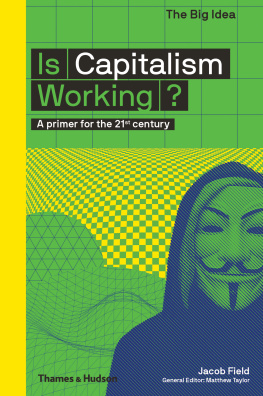


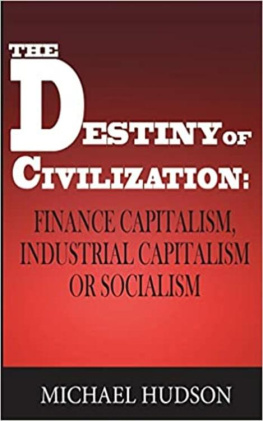
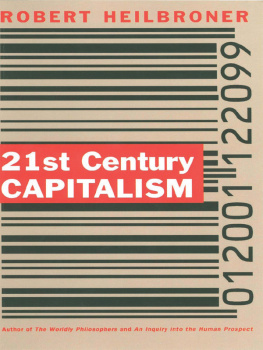
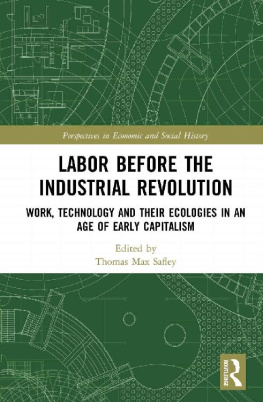
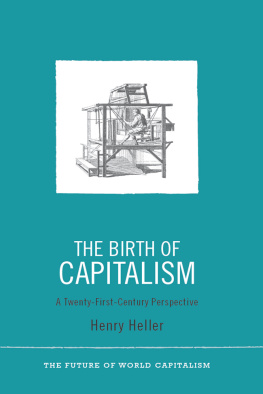
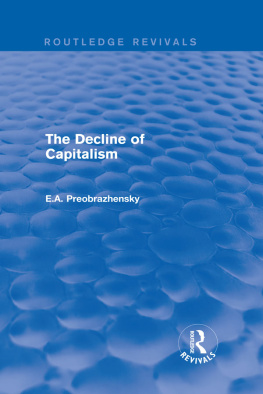
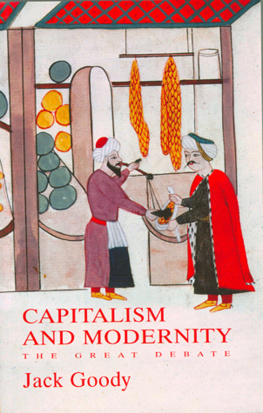
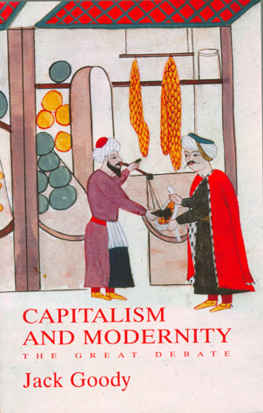
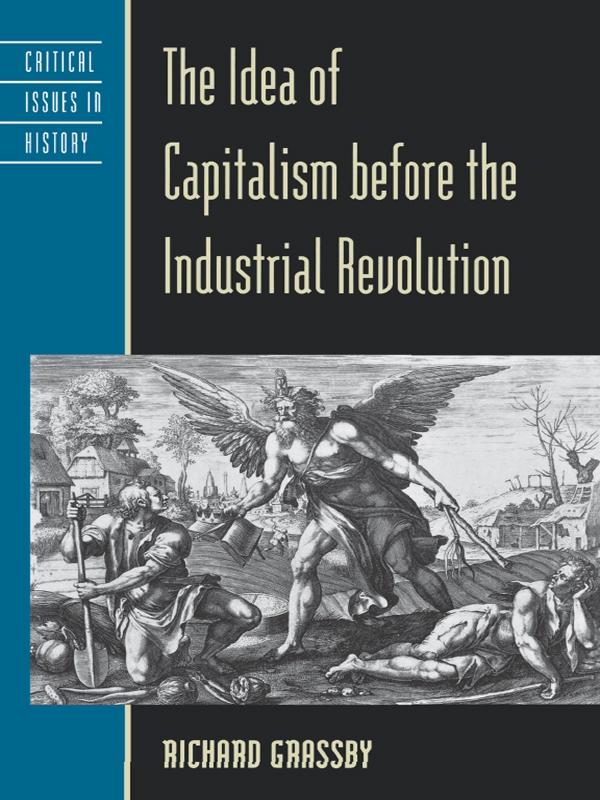
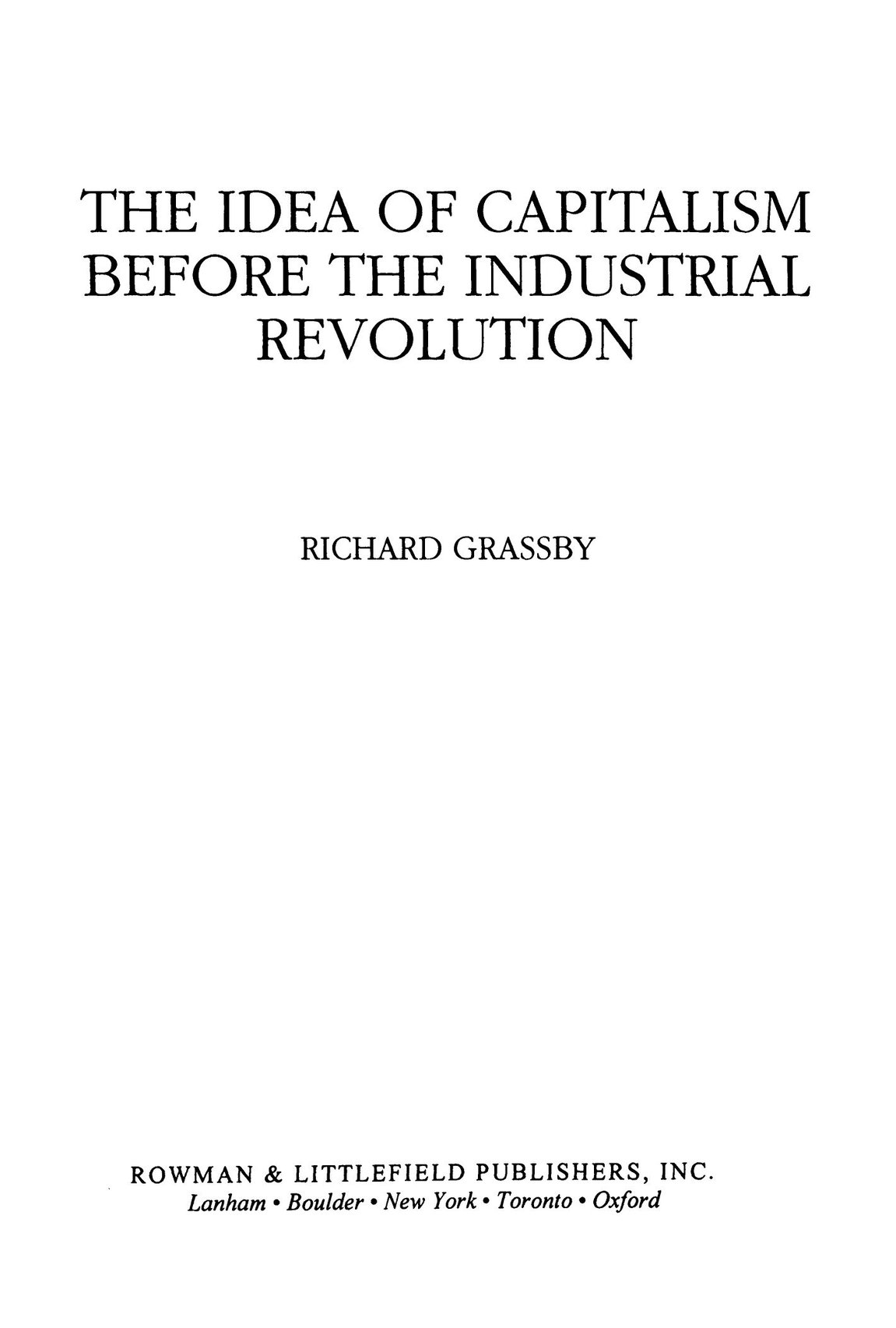
 The paper used in this publication meets the minimum requirements of American National Standard for Information SciencesPermanence of Paper for Printed Library Materials, ANSI/NISO Z39.48-1992.
The paper used in this publication meets the minimum requirements of American National Standard for Information SciencesPermanence of Paper for Printed Library Materials, ANSI/NISO Z39.48-1992.